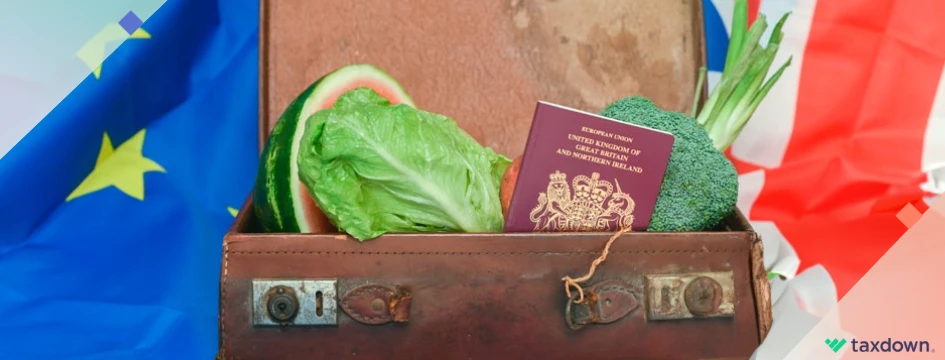We tell you everything you need to know about income tax if you are a foreigner.
The tax obligations of Spanish citizens abroad must be determined according to their tax residence. There are no general rules for the entire European Union that indicate how the income of persons who reside, work or are outside their country of origin must be reported or recorded; however, we will try to clarify some general doubts.
La reclamación económico-administrativa es un procedimiento gratuito para impugnar decisiones de Hacienda cuando crees que se han equivocado. Tienes 1 mes desde la notificación para presentarla, no necesitas abogado y la resuelve un tribunal independiente. Debes explicar claramente tu caso, aportar pruebas y ser específico en lo que pides. Aunque debería resolverse en 1 año, suele tardar más. Si te deniegan la reclamación, puedes seguir reclamando por otras vías. Es tu derecho como contribuyente y puede ahorrarte mucho dinero.
To determine if you’re a tax resident in Spain, at least one of the following conditions must apply:
📝 If you meet any of these criteria, you’re required to file your tax return in Spain as a resident.
Even if you claim to have moved abroad, if that country is considered a tax haven, Spain may still treat you as a tax resident under Law 35/2006, which governs Personal Income Tax, among others.
If you work abroad and you have to file your income tax return in Spain, it is important to avoid double taxation, so you should check if the country where you work makes discounts on the salary earned and asks you to file the Spanish income tax return.
These agreements are understood as agreements signed between countries, it was agreed that each country would only receive what is declared in them and no other taxes would be paid for the same income, Spain has double taxation agreements with the following countries:
It is important to highlight that filing income tax in Spain when working abroad does not exempt you from paying other taxes in the country where you reside, in conclusion, if you receive any type of income from Spain, such as renting a house, it will have to be declared as a non-resident income tax.

When filing your IRPF (Personal Income Tax) in Spain while earning income from abroad, you need to consider a few key points:
👉🏻 Want to know how much you could save thanks to Article 7p? Try our calculator.
✅ If you meet these criteria, your foreign-earned income may be exempt from taxation in Spain.
If you don’t qualify for this exemption, you’ll still have to declare the income, but you might benefit from the Excess Regime or apply deductions to avoid double taxation.

Si eres residente fiscal español y trabajas en otro país, hay ciertas cosillas que podrían hacerte la vida un poco más fácil en cuanto a impuestos se refiere.
Exenciones de pago: Si ganas hasta 60.100€ al año fuera de España, podrías respirar aliviado con una exención. Pero, ¡ojo! Esto solo funciona si cumples con ciertos requisitos:
Elige tu estrategia: No puedes mezclar y combinar exenciones. Si optas por la exención de los 60.100€, no puedes aplicar al mismo tiempo el régimen de excesos, que básicamente te permite no pagar impuestos por ciertos extras que recibes por trabajar fuera.
Si trabajas en un país pero vives en otro, como por ejemplo, si trabajas en España pero vives en Portugal o Francia, generalmente solo pagarás impuestos en tu país de residencia. Pero cada país tiene sus reglas, así que si trabajas en un lado de la frontera y duermes en el otro, mejor échale un vistazo a los convenios fiscales para no llevarte sorpresas.
Por ejemplo, si trabajas en España y vives en Francia, normalmente solo pagarás impuestos en Francia. Pero cada caso es un mundo, así que informarte sobre los convenios fiscales te puede salvar de dolores de cabeza.How to File Your Tax Return from Abroad?
Are you living or working abroad and unsure how to handle your tax return in Spain? You’re not alone. This can be confusing, especially when you might be required to pay taxes in both countries.
Your tax obligations depend on your specific situation. Understanding your tax residency status, available exemptions, and international tax agreements is essential to filing your tax return correctly and avoiding double taxation.
How Do You Know If You’re a Tax Resident?
Before anything else, you need to determine whether you’re considered a tax resident in Spain. This is crucial, as it affects where and how you must pay taxes.
According to the Spanish Tax Agency (Agencia Tributaria), you’re a tax resident in Spain if:
Even if you move to a tax haven, Spain may still consider you a tax resident during the year you change residence. Special rules also apply to diplomats and workers on international missions, who usually retain their Spanish tax status.
💡 If you don’t meet these criteria but earn income in Spain, you’ll be taxed as a non-resident under the Non-Resident Income Tax (IRNR). Non-residents only pay taxes on income sourced in Spain.
If you’re a Spanish tax resident but working abroad, good news: you may qualify for an income exemption of up to €60,100 per year on foreign-earned salary.
But here’s the catch—you must meet all of the following conditions:
✅ If you meet these criteria, your foreign salary (up to €60,100) can be exempt from Spanish taxation.
Alternative Option: The Excess Regime
There’s another method called the Excess Regime—but it’s not compatible with the €60,100 exemption.
This regime allows you to exclude from taxation the extra compensation (known as “plus de desplazamiento”) you receive for working abroad—essentially, anything you earn above your normal salary in Spain.
❗You must choose one regime or the other, not both. Carefully evaluate which one benefits you most.
Cross-border workers live in one country and work in another—common in regions close to national borders.
Each case varies depending on the bilateral agreements between Spain and its neighboring countries:
🔍 Always check the specific tax treaty between Spain and the country where you work or live. It can save you from unnecessary payments—or legal headaches.
Got questions? We’ve got the answers (no jargon, promise).
If I live outside Spain, do I have to file an income tax return?
It depends. If you are a tax resident in Spain (meaning you spend more than 183 days a year here or your main economic interests are in Spain), you must declare your worldwide income, even if you live or work abroad.
What if I’m a foreigner working in Spain?
If you spend more than 183 days in Spain or your main job is here, you are considered a tax resident and must declare all your global income. If not, you’ll pay tax only on your Spanish-sourced income, as a non-resident (and using a different form: Modelo 210).
Do I have to pay tax twice on foreign income?
Don’t worry—you usually won’t be taxed twice. Spain has double taxation treaties with many countries, so you can deduct taxes already paid abroad from your Spanish tax return.
If I reside abroad, how can I ratify my tax residency?
The Tax Agency requests your tax residence in order to be able to contact you in case it is necessary. When residing abroad, you must register in the Census of taxpayers by filing Form 030. Once you have validated your situation with the Tax Agency, you can return to TaxDown and continue with your tax return.
What taxes do foreigners have to pay in Spain?
Here you have the complete list of taxes in Spain that you must take into account as a foreigner:
– Income tax return (IRPF)
– VAT (Value Added Tax)
– Taxes for non-residents: IRNR
– Wealth tax (Impuesto sobre el patrimonio)
– Inheritance and gift tax
– Capital gains tax
– Tax on the purchase of a home
Remember that each of these taxes has its particularities and specific requirements, so it is important to be informed and comply with your tax obligations according to your personal and fiscal situation.
Filing an income tax return as a foreigner in Spain or as a Spanish resident abroad can be tricky. Understanding your tax residency, avoiding double taxation, and applying the right exemptions is key to staying compliant and not overpaying.
At TaxDown, we make it simple. We guide you through every step so you can meet your obligations without stress or surprises. Our team reviews your case and helps you claim every tax benefit you’re entitled to.
👉 Start for free at app.taxdown.es and forget about international tax headaches.
TaxDown es la plataforma española que te ayuda a hacer tu declaración de la renta de forma fácil, rápida y con el máximo ahorro. Colaborador social de la Agencia Tributaria, cuenta con más de 150 expertos fiscales que revisan cada declaración.